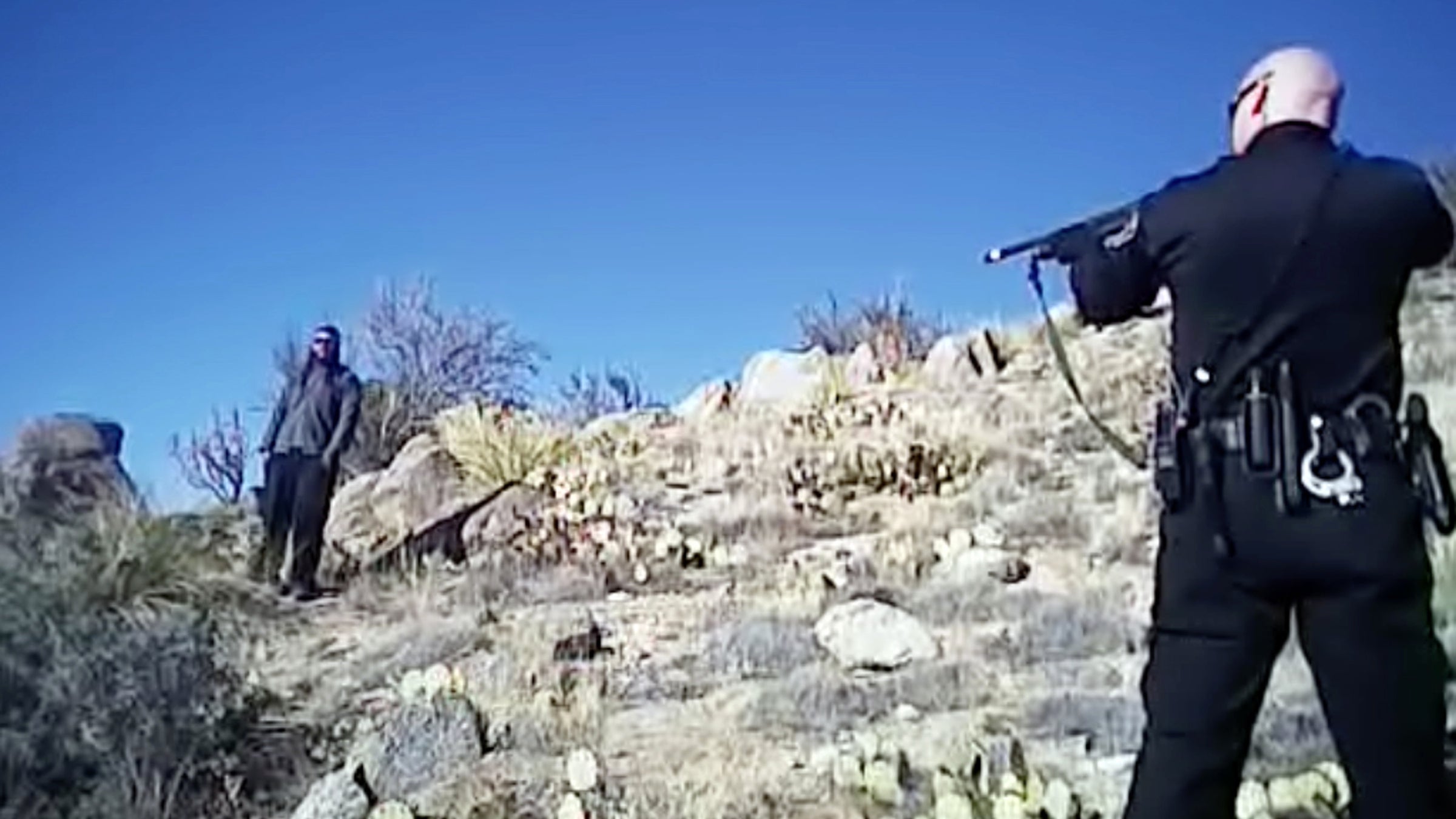Crisis-intervention training can reduce deadly police interactions with mentally ill, experts say
Listen
This image made from a March 16, 2014, video shows James Boyd, 38, left, during a standoff with officers in the Sandia foothills in Albuquerque, N.M., before police fatally shot him. The shooting of Boyd, who suffered from mental illness, ended a nearly five-hour standoff that involved more than a dozen officers by the time it ended. (Albuquerque Police Department via AP, File )
It’s now been two full years since The Washington Post started tracking fatal shootings by police. In 2016, as in the year before, many were mentally ill.
One in four people shot by police over the last two years showed signs of mental illness, according to the Washington Post’s analysis. That includes Kim Thomas’ son, Earl Pinckney, who had bipolar disorder.
Pinckney was shot and killed by Harrisburg police in August after Thomas’ granddaughter called the police because she was frightened by a domestic dispute.
“I said, ‘Please don’t shoot my son,’ because I just felt like they were going to shoot him for no reason,” Thomas said.
The police had been called to the house several times before. The Harrisburg Bureau of Police declined to comment on the case because it was investigated by the Dauphin County district attorney. The district attorney cleared officers in November, citing their reports that Pinckney threatened his mother with a knife.
But Thomas isn’t satisfied, saying the department needs a specially trained team to respond to incidents like this.
“Not to come to kill, to let the situation calm down, if there’s a situation. Not to pull your guns out right away,” she said.
Arthur Evans, commissioner of Philadelphia’s Department of Behavioral Health, said crisis-intervention training can result in fewer deadly interactions. The 40-hour course teaches officers to recognize if someone is in psychiatric crisis.
“The training … gives officers a different way of responding to those situations,” he explained.
Seven people were fatally shot by Philadelphia police over the two years of the Washington Post study. None of them showed signs of mental illness.
Several years ago, before crisis intervention training was implemented in Philadelphia, Evans said some fatal shootings did involve people with mental illness.
John Snook of the Treatment Advocacy Center said training is good, but police shouldn’t be on the frontlines of administering what he sees as mental health treatment. The answer, he said, should be more beds at inpatient facilities and intensive treatment.
“We’re never going to train our way out of these incidents. We need to ensure that people aren’t allowed to get so sick that they’re posing that sort of danger to themselves and others,” he said.
Others who were fatally shot while showing signs of mental illness in this region include Jeremy McDole in Wilmington, who police were told had a gun, and Oscar Camacho in Camden. who was talking about suicide before he was killed.
WHYY is your source for fact-based, in-depth journalism and information. As a nonprofit organization, we rely on financial support from readers like you. Please give today.

